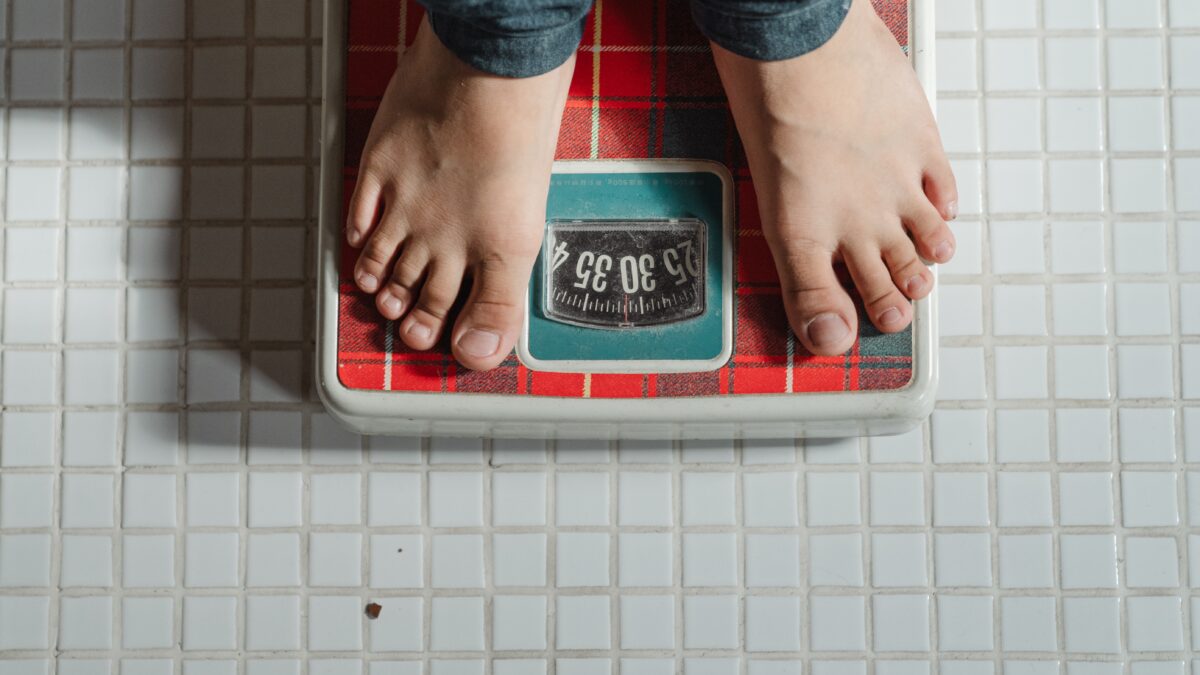
How Much Protein Do We Need to Lose Weight?

In the quest to lose weight, many people wonder about the role of protein and how much they should consume to optimize their weight loss journey. Protein is an essential macronutrient that plays a crucial role in various bodily functions, including muscle growth and repair, hormone production, and immune system support. Additionally, it can also contribute to satiety, helping to curb cravings and promote a feeling of fullness. In this article, we will delve into the topic of protein and its significance in weight loss, discussing the recommended protein intake, its benefits, and ways to incorporate protein-rich foods into your diet. How Much Protein Do We Need to Lose Weight?
Introduction
When it comes to losing weight, understanding the importance of protein is crucial. While diet and exercise are both significant factors in weight loss, protein consumption can have a significant impact on your progress. By incorporating adequate protein into your diet, you can support your body’s functions, preserve muscle mass, and promote satiety, ultimately aiding your weight loss efforts. How Much Protein Do We Need to Lose Weight?
Understanding Protein and Its Role in Weight Loss
The Importance of Macronutrients
Macronutrients, including protein, carbohydrates, and fats, are the three main components of our diet. Each macronutrient has a specific role in our body, and striking the right balance is essential for overall health and well-being. When it comes to weight loss, protein stands out as a key player due to its numerous benefits.
Protein’s Impact on Metabolism and Satiety
Protein has a higher thermic effect compared to carbohydrates and fats, which means that the body burns more calories during the digestion and absorption process. This increased calorie expenditure can contribute to a modest boost in metabolism, supporting weight loss efforts. Moreover, protein-rich foods tend to be more satiating, helping to control hunger and reduce overall calorie intake.
Recommended Protein Intake for Weight Loss
General Protein Recommendations
The recommended dietary allowance (RDA) for protein is 0.8 grams per kilogram of body weight. However, for individuals aiming to lose weight, slightly higher protein intakes may be beneficial. Protein needs can vary depending on factors such as age, sex, activity level, and overall health.
Factors Influencing Protein Needs
Several factors can influence an individual’s protein needs. These include physical activity levels, muscle mass, body composition goals, and any underlying medical conditions. It is advisable to consult with a healthcare professional or a registered dietitian to determine the ideal protein intake for your specific circumstances. How Much Protein Do We Need to Lose Weight?
Protein Intake for Sedentary Individuals
For sedentary individuals looking to lose weight, a protein intake of around 1.2-1.5 grams per kilogram of body weight may be appropriate. This higher protein intake can help preserve lean muscle mass and support satiety, both of which are essential for successful weight loss.
Protein Intake for Physically Active Individuals
For those engaging in regular physical activity or strength training exercises, a slightly higher protein intake of around 1.6-2.0 grams per kilogram of body weight is recommended. This increased protein consumption aids in muscle repair and recovery and supports the development of lean muscle mass. How Much Protein Do We Need to Lose Weight?
Benefits of Adequate Protein Intake during Weight Loss
Preservation of Lean Muscle Mass
When losing weight, the goal is to primarily shed excess body fat while preserving lean muscle mass. Adequate protein intake helps prevent muscle breakdown and provides the necessary building blocks for muscle repair and growth. This preservation of muscle mass not only improves body composition but also helps maintain a higher metabolic rate, making it easier to manage weight in the long term.
Increased Calorie Burning
Protein has a higher thermic effect compared to other macronutrients, as mentioned earlier. By consuming protein-rich foods, you can slightly elevate your metabolic rate and enhance calorie burning. While the effect may be modest, every additional calorie burned can contribute to your weight loss journey. How Much Protein Do We Need to Lose Weight?
Enhanced Recovery and Muscle Repair
Engaging in regular physical activity and workouts can put stress on your muscles. Protein is essential for muscle repair and recovery, allowing you to bounce back more quickly after exercise sessions. By replenishing your body with adequate protein, you can support the healing process and optimize your fitness progress. How Much Protein Do We Need to Lose Weight?
Incorporating Protein-Rich Foods into Your Diet
Lean Sources of Protein
To meet your protein needs, include a variety of lean sources in your diet. Lean meats like chicken, turkey, and fish are excellent choices. Additionally, plant-based sources such as legumes, tofu, tempeh, and quinoa offer protein along with other valuable nutrients. Incorporating dairy products, eggs, and nuts can also contribute to your protein intake.
Vegetarian and Vegan Options
For individuals following a vegetarian or vegan diet, it’s important to explore plant-based protein sources. Legumes, lentils, beans, tofu, tempeh, seitan, edamame, and plant-based protein powders are excellent choices. Combining different plant-based protein sources can help ensure you obtain all the essential amino acids necessary for optimal health. How Much Protein Do We Need to Lose Weight?
Balancing Protein with Other Macronutrients
While protein is crucial, it’s important to maintain a balanced diet by including carbohydrates and healthy fats as well. Whole grains, fruits, vegetables, and unsaturated fats, such as avocados, nuts, and olive oil, should be part of your daily meals. This balanced approach provides a wide range of nutrients and helps maintain overall dietary harmony.
Tips for Successful Weight Loss with Protein
Spreading Protein Intake throughout the Day
To maximize the benefits of protein, aim to distribute your intake evenly throughout the day. Including protein-rich foods in each meal and snack can help keep you satisfied and prevent energy slumps. This approach supports stable blood sugar levels and promotes optimal digestion and nutrient absorption.
Meal Planning and Preparation
Planning and preparing your meals in advance can be instrumental in achieving your weight loss goals. By having protein-rich options readily available, you can make healthier choices and avoid relying on processed or fast foods. Experiment with new recipes and meal ideas to keep your diet exciting and enjoyable.
Tracking Protein Intake
Keeping track of your protein intake can help ensure you’re meeting your daily goals. Various mobile apps and online tools can assist in tracking macronutrients and provide valuable insights into your overall nutrition. Regularly monitoring your progress allows you to make necessary adjustments and stay on track with your weight loss journey.

Common Myths and Misconceptions about Protein and Weight Loss
Protein Causing Kidney Damage
One common myth is that a high-protein diet can cause kidney damage. However, numerous studies have debunked this claim, showing that a well-balanced, protein-rich diet is safe for healthy individuals. It’s important to note that individuals with pre-existing kidney conditions should consult with a healthcare professional before making any significant dietary changes. How Much Protein Do We Need to Lose Weight?
High-Protein Diets Being Harmful to Health
Another misconception is that high-protein diets are detrimental to health. While extremely high-protein diets may have potential risks, a moderate increase in protein intake, within the recommended ranges, is generally safe and beneficial for weight loss. As always, it’s crucial to prioritize a balanced diet and consider the overall quality of your food choices. How Much Protein Do We Need to Lose Weight?
Conclusion
Protein plays a vital role in weight loss, supporting muscle preservation, satiety, and overall metabolic health. Incorporating an adequate amount of protein into your diet can optimize your weight loss efforts and help you achieve sustainable results. Remember to consider your individual needs, consult with professionals if necessary, and focus on a balanced approach to nutrition and physical activity.
FAQs
- Q: Can I lose weight by consuming only protein?
- A: While a high-protein diet can aid in weight loss, it’s important to maintain a balanced approach by including other macronutrients and essential nutrients.
- Q: How does protein help with satiety?
- A: Protein-rich foods take longer to digest, promoting a feeling of fullness and reducing cravings, thus aiding in weight management.
- Q: Are protein shakes recommended for weight loss?
- A: Protein shakes can be a convenient way to supplement your protein intake, but whole foods should be prioritized whenever possible. How Much Protein Do We Need to Lose Weight?
- Q: Can I consume too much protein while trying to lose weight?
- A: Excessive protein intake can strain the kidneys and may not provide added benefits. It’s important to stay within recommended ranges and consult professionals if you have concerns.
- Q: Is it necessary to consume animal-based proteins for weight loss?
- A: No, there are plenty of plant-based protein sources available for individuals following vegetarian or vegan diets. How Much Protein Do We Need to Lose Weight?



